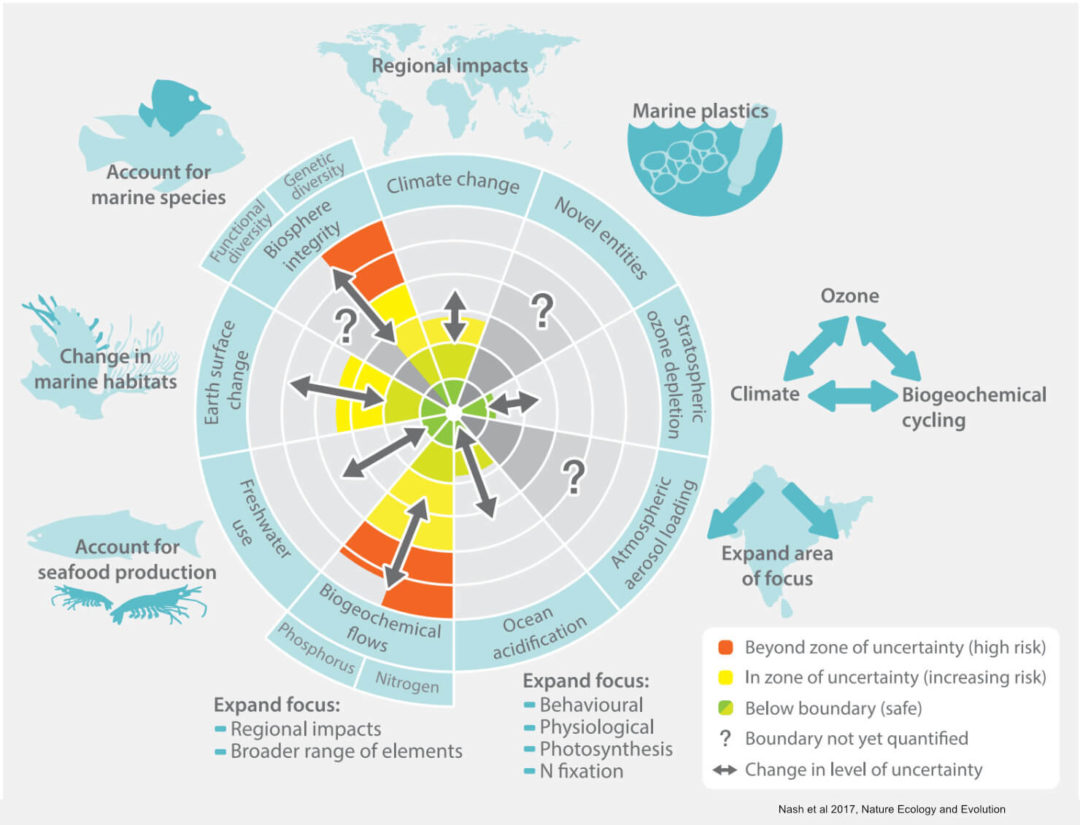CHALLENGE-BASED THEMES
Human society’s increasing use of the oceanic realm has brought with it new problems and opportunities; due to both the unprecedented growth of existing industries, such as fisheries, transport and tourism, and the rapid expansion of new industries including mariculture, seabed mining, and energy generation. Simultaneously, there has been an escalation in data collection on ocean state and processes, and how humans use and impact the oceans.
Now, the challenge is to find tools that can utilize available data and transform it into knowledge that will guide development of the oceans that is equitable and supportive of social, economic and ecological systems. It is critical to develop an understanding of the ocean’s biophysical limits, and how to support human wellbeing while staying within these limits, as this will inform societal discussion around acceptable levels of environmental change within the oceans.
The UN Sustainable Development Goals and the UN Decade of Ocean Science for Sustainable Development both provide a structuring opportunity to progress the interdisciplinary science needed to deliver this fundamental knowledge and propose potential pathways to sustainability. The work we are doing in this domain encompasses defining planetary boundaries, food and nutrition security research, sustainable development of marine industries, and socioecology

